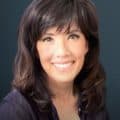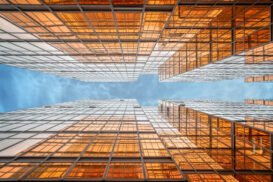In celebration of International Women’s Day, on Wednesday, March 10 women from across Cloudera in America and EMEA came together with an external audience to debate and discuss the state of women. Our transatlantic panel featuring Bianka Racz, Software Engineer; Christine Sherry, Director Critical Incident Response; Dominique Hollins, Director of Culture and Inclusion and Tahmeena Tariq Senior Corporate Counsel, came together to discuss how COVID has changed our expectations of employers, the work place and answer the question: What’s possible now?
What’s the status quo?
Women. We’re exhausted. Our emotional workload since the pandemic began has gone through the roof. Working from home means living at work. When I asked the panellists and audience to rate how stressed they were on a scale of 1 – 10 (1 being I’ve just started my vacation and 10 being so wrung out you can see the stress), we didn’t see anything under the number 5, with most reporting 7 or above. That’s not sustainable and spotlights the collective pressure women find themselves under.
In her Washington Post piece, Kamala Harris called the exodus of women from the workplace a ‘national emergency.’ And she’s not wrong. If women are not well represented in business, government and society, then the world at large suffers. How has COVID changed our panel’s view of the workplace and what are they looking for from an employer?
For Tahmeena, a company’s values are important to her – but they have to live them, not just put them on their website: “It’s not enough to put out a statement. As a society over the last year we’ve realised that we need to do more and if we realise that about ourselves, by extension we want our employers to do more.”
This theme of accountability was a thread throughout the conversation, both in relation to our employer and ourselves. As she recollected how the financial crash in 2008 led to a change in circumstance which saw her leave school and get a job in an entry-level technical support position, Christine said: “I had no idea what I was doing. But I had to get comfortable with that fact and dive right in. And that moment, taking that leap, is why I am where I am today. If you wait for something to happen for you, you’ll be waiting a long time. You have to jump in, go to that scary place and not be afraid to ask for help.”
Dominique picked up on this when she recollected a time she challenged a leader to live up to his words. She reminds us that “you are the hero you’ve been waiting for; you are now a representation of the people you used to look up to. To change things, you have to find the opportunity and seize it.”
What does diversity look like?
“When I walk into a room, I want to see the United Nations. I don’t want everyone to look and sound the same, I want to know that ‘different’ is celebrated and embraced,” was Dominique’s response to this question. How many of us can genuinely say we see this at work? And what impact does this have?
Christine admits that not seeing the ‘United Nations’ at the top has stopped her from applying for roles. “I would worry that I didn’t check all the boxes. I thought I had to be perfect in order to apply. I also believed that the people around me, my managers, would put me forward because I was a good fit. I learned the hard way that you have to be your own hero. Now I take personal responsibility for mentoring the women in my team, setting out a path, and giving them the support they need to trailblaze.”
Community matters
Christine raises an extremely important point. We see it in our own candidate data and it’s a wider established fact that while women think they have to meet 100% of the listed criteria to apply for a job, men will apply if they meet only 60%. That’s why it is so important that women come together as a community to lift each other up.
For Bianka finding a community was extremely important for gaining access to advice about a career in tech, leadership, and overcoming unkind comments made about her career choice. Dominique urged us all that “as you meet other powerful women, hold on to their hand and reach back to hold the hand of another woman that needs lifting up.”
When the panel has had to challenge, how did they do this? For Tahmeena, working for a US company hasn’t been without its challenges as cultures and expectations are often very different than in the UK. Her advice is to “self-advocate, which is often the hardest sort of advocacy. Do it, speak from a position of knowledge and a mindset that nothing is off the table.”
Christine noted that challenging microaggressions is only something that she’s recently started to do and that she’s been pleasantly surprised by people’s reactions when she has, “we’ve got to dig in, pause, and flip the script.”
Lots of great advice from some inspiring women, but what’s the best piece of advice they’ve been given?
For Bianka it was “don’t be afraid to go outside your comfort zone and try new things”; “Self-belief,” replied Tahmeena without hesitation; Dominique’s advice was to “be you, don’t contort yourself to the detriment of your identity” and for Christine “I always remember what my grandmother said: do your best, you are enough.”
This is just a snapshot of an incredibly uplifting and empowering conversation. A big thank you to all the panelists for their honesty and vulnerability in the digital room. The panel showed that when women come together as a community, our light shines brighter. So, what’s possible now? That’s in our hands. Let’s dig deep, find our voice, create allies, and continue to fight for progress, authenticity, and a gender-equal world for the girls who will stand on our shoulders.
If you love the sound of this event but weren’t able to attend, Cloudera will be hosting another event entitled “Choose to Challenge: Smashing Glass Ceilings” on 19th March. For more details and to register please click here.



